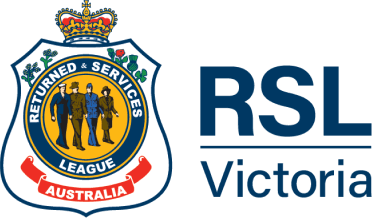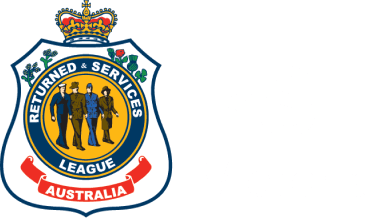Mufti VOL. 62 No. 1 April 2022
It’s a long way from Cardross in northwest Victoria to Singapore, but that’s where Vera Torney found herself in February 1942, facing a Japanese advance down the Malay peninsula. Vera’s decision to enlist in the Australian Army Nursing Service (AANS) on 30 April 1941 saw her experience the horror of a Japanese attack that could have cost her her life, but instead saw her awarded for her bravery.
Before WWII
Regarded by her family as a country girl, Vera Alexandra Torney was born on July 27, 1916, at St Arnaud, Victoria; the youngest of eight children to John and Agnes Torney. According to the family, Vera longed to see the world beyond a small country town, so she set off to Melbourne in the mid-1930s to train as a nurse at the Austin Hospital in Heidelberg.

During a time of polio outbreaks, Vera recalled to her family years later how respirators had to be operated by hand during power outages in order to keep children alive. It was here she also worked in the burns unit.
Little is known about Vera’s decision to enlist during WWII, nor her time in the AANS. Like so many others, Vera talked little about her experiences during the war. “She did talk to me funnily enough,” said Vera’s niece Judy Dean. “I really became a nurse because of her exciting life. Her stories enthused me and I then decided I wanted to be a nurse.”
Vera’s journey
What we do know is that Sister Vera Torney was serving with the 2/13th Australian General Hospital in Singapore, and was one of the last nurses to leave the island having assisted in the evacuation of troops from the hospital.
It was three days before Singapore fell into enemy hands when the merchant vessel Empire Star left Singapore Harbour on 12 February 1942. On board were more than 2,100 people, made up of wounded soldiers, 59 nurses including Vera, and the ship’s crew, all evacuating Singapore ahead of the Japanese invasion.
Headed for Batavia, now Jakarta, Empire Star came under heavy enemy fire in what was a sustained enemy air attack. With the ship receiving direct hits, Vera and another AANS nurse, Melbourne-born staff nurse, Lieutenant Margaret Irene Anderson, not only tended the wounded troops but used their own bodies to shield their patients from danger.
The attack resulted in 14 dead and 17 wounded, with the dead buried at sea — something that haunted Vera throughout her life.
"They were putting bodies in the water, and she was thinking they might not have been dead. That stuck with her"
Judy Dean
The Empire Star eventually made it to Batavia where it underwent repair. After finally arriving in Fremantle on February 23, some of the nurses disembarking the Empire Star were handed white feathers.
Sister Vera Torney was appointed a Member of the Order of the British Empire on 22 September 1942 for her ‘brave conduct’. Staff nurse Margaret Anderson was awarded the George Medal.

Undeterred by her experience, Vera returned to service after a brief period of rest, serving on hospital ships as the war continued, including the hospital ship Wanganella which travelled to Ceylon, today known as Sri Lanka, and the Middle East, collecting wounded Australian soldiers.
Her children recalled that as children, they explored the contents of a steamer trunk Vera kept. It contained fabric and gemstones she collected from her travels around Asia and the Middle East.
It would be after the war ended before Vera learned of the fate of her fellow AANS comrades from Singapore, with those not massacred by the Japanese on Bangka Island made prisoners of war.
Vera returned to the Austin Hospital as a theatre nurse before the war ended. It was while working at the repatriation hospital that Vera met her future husband, Bill Berry from Melbourne, a patient in the hospital recovering from scrub typhus he had contracted while serving in Papua New Guinea.
Life after service
Vera and Bill married after Vera demobilised in September 1945. They lived in a unit in Parkville with their two children, Catherine and Simon, before later moving out to the suburbs.
It was after the war that Vera helped establish the Nurses Memorial Centre in St Kilda Road. Despite wanting to return to nursing, it would have meant intense re-training.
Instead, Vera began working for Myer, helping women who’d had mastectomies by fitting them with corsets. It was a role she loved.
Judy spent weekends with her Aunt Vera in Melbourne where she met many of Vera’s friends.
“She had this really interesting group of war nurse friends. She used to meet them once a month. They’d be shrieking with laughter. It was amazing chatter for me. I was 18 or 19 [at the time]. It was spellbinding.”
"Vivian Bullwinkel who survived [as a POW] was there. It was around 1954, so those war nurses were still actively seeking each other out. Like the old soldiers"
Judy Dean
Vera lived in Melbourne until she passed away on June 19, 2006, aged 89. It says a lot about her that it was through other people and not Vera herself that her children learned of her being a ‘war heroine’.
Describing her as a proud independent lady, Judy recalls her Aunt Vera with tears in her eyes.
“She was an amazing person. I felt so proud of her all her life, and we had a real rapport. She was an incredible lady who was the heroine in my life along with my mum.”

